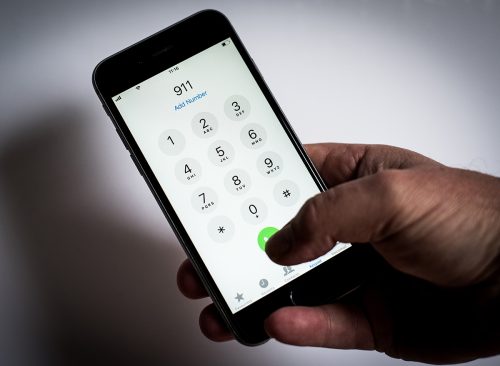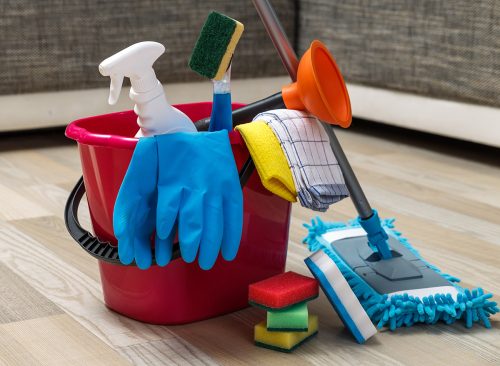12 Red Flags That Signal It’s Time to End Your Relationship
A sexpert reveals the things you should look out for.

Knowing when to end a relationship can be tough. Many people end up staying in an unhappy one much longer than they should, just because they aren’t sure if it is over. British expert Tracey Cox claims to have pinpointed the key signs that signal the end so you can walk away without wasting your time.

The first sign? The more you know your partner, the less you like them, she tells the Daily Mail. “A very wise woman told me you need to know someone for all four seasons before you really know them – in other words, at least a year,” Cox explains. She describes that you need to see how they react in all types of situations, inlcuding happy, stressed, sad, or faced with difficult challenges.
“You need time to meet all their significant others – family, long-term friends, work colleagues – in order to get a sense of how they treat people they love and how others view them,” she adds.
“You can’t really tell how they are in a relationship, until they’ve been tested. Whether support is there when needed, whether they’re loyal, kind and understanding. Ideally, the more you discover about your partner, the more you should like and love them. If the opposite is happening and you’re unimpressed or appalled, it’s a damn good reason to rethink things.
A person has emerged from behind the mask: they aren’t who you thought they were.

The best kind of couple brings out the best in each other. However, if you bring out the worst, it’s time to end things. ‘It doesn’t mean either of you are bad people, some people just bring out the worst in each other,” she says. “Incompatible attachment styles, clashing core personality traits, behaviors that set off potent triggers – couples who score high on chemistry but low on everything else often find this happening. You hang around for longer than you should because the sex is good or they feel like your ‘soulmate’; regardless, it’s impossible to ignore that each of you manages to bring out all your negative traits and none of the positive.”

Indifference is not a good thing in relationships. According to Cox, it’s better to hate your partner than feel indifferent about them. “If you hate, you still care. If you feel nothing at all, hope and love have died (or were never there),” she says. “Ever wish your partner would have an affair and fall in love with someone else? That they’d do something that was so unforgivable, you’d have a good enough reason to leave them? You don’t want anything bad to happen to them, but you really would prefer to be single? Chances are you’re staying in a relationship for reasons other than your own: to keep the kids, in-laws, family happy.”

If your partner isn’t the first person you tell everything to – and maybe not even the second – it’s not a good sign. “It’s the acid test that reveals in an instant who is close to their partner and who isn’t. When something good or bad happens, who is the first person you tell? If it’s not your partner (and there isn’t a good reason why – they are uncontactable because of work etc), it’s a big, BIG red flag,” Cox says. “We are closest to the people who know the most about us. No matter how close you are to your friends or family, if your relationship is healthy, your partner should instinctively be the first person you want to tell good or bad news to.”

“Communication problems are always at the core of most break-ups: if you’re both good at talking things through, even major issues can be solved. If you’re not, the tiniest thing can derail you,” Cox says. “Bad communication sets off a particularly toxic cycle. You pick fights because nothing is ever solved, and you both constantly feel angry and unheard. If all your arguments quickly turn nasty and confrontational, it means the level of simmering rage and resentment in the relationship is at its peak. It’s make or break time – and usually break, unless the couple seek help with an experienced therapist.”

The flipside, you don’t argue at all anymore, is equally as bad. “Fine if there’s nothing to argue about. But if you have serious problems and neither of you are even attempting to solve them, it’s generally a sign you’ve given up,” says Cox. “You don’t believe there is a solution, so why bother finding one? Rather than a truce, it feels like an uneasy stand-off, both eyeing the other with suspicion. You might think you’re keeping the peace by not discussing anything, but if you stop communicating completely, you’re pushing the relationship off a cliff.”

If you are avoiding physical contact with your partner, run. “It often starts with the ‘ick’ – you feel repulsed when your partner touches you sexually. What used to excite now does the opposite. Alone, that’s not a sign the relationship is over. Sex stops for many reasons in good, strong relationships where both partners love each other. (Stress or other worries, erection difficulties, menopause, the age of the relationship.) But if it moves into you not enjoying any affection or physical contact at all, Houston does have a problem,” says Cox. “Touching is critical for the maintenance of a relationship. It triggers the production of the hormone oxytocin which keeps you feeling bonded and emotionally connected. Touch relays acceptance, affection, attraction. Even if it’s not sexual attraction, touching says ‘I still love you. ‘ Reconciling from your partner’s touch on any level usually means there is such deep-seated negativity, the relationship is past saving.”

“If you can’t imagine a future together, it’s usually because your dreams aren’t aligned and you have little in common,” says Cox. “There’s a reason your parents told you to marry the person next door: people who are alike live together more happily and last longer than those who are opposites.”

It takes two people to make a relationship work, “and both people need to be working at it, for both to be happy,” says Cox. “True, some are naturally better at doing relationship maintenance than others, but the division of labor still needs to be reasonably even. If you’re always the person who does all the heavy lifting – the one who finds solutions, instigates ‘the chat’, smooths things over, backs down, puts themselves last to avoid upsetting the other – and your partner sits back and takes, the house of cards is going to topple.”

“Dependability is something rarely talked about in relationships but it’s the foundation: you need to know your partner has your back. If you can’t trust them to be there for you and they let you down constantly, there is no relationship,” explains Cox. This isn’t limited to fidelity, but all aspects of life. “Trust that they’ll manage their/your money, turn up for the kids, contribute to the household, not abuse drugs or alcohol, be helpful and reliable with friends and family. If you have a complete lack of faith that your partner will do anything right by you, it’s over,” she says.

If the sound of their key in the door makes your heart sink, it’s over. “All couples need time alone but if you don’t miss them at all – even if they’ve been away for a longish period – you don’t need to be a relationship counselor to figure all isn’t well,” Cox says. “If being together means arguments, nastiness and being treated badly, why would you want to spend time with them?
Living life with someone who is bitter and negative isn’t fun. Neither is being with a narcissist whose sucks the life out of you to fill the void inside them. If just thinking of your relationship makes you feel stressed and anxious and you never want to hear their key in the door, time you moved and got a new set.”
RELATED: Surprising Signs You’ve Already Had COVID

An easy way to know that it’s over is that you’ve felt desperately unhappy for a long time. “It’s impossible to put a time limit on how long is too long to stay in an unhappy relationship because it depends on so many factors. Your financial status, whether you have children and the length of time you’ve been together, to name just a few,” Cox says. “Generally speaking, the longer you’ve been together, the longer you’ll wait for things to improve. “If you’ve been dating six months and been unhappy for the last four, the issue is why haven’t you legged it by now. If you’ve been together 20 years with kids and grandkids, walking out after one year of trouble would be too soon.”














